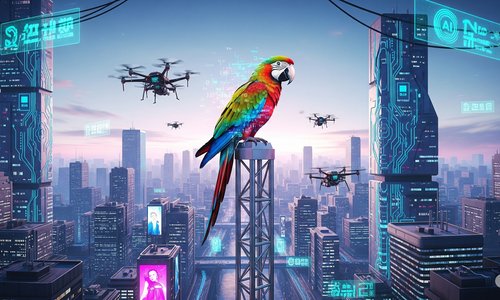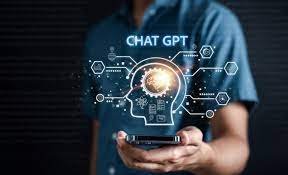
A Promessa e o Perigo da Nova Revolução Digital
A nova corrida tecnológica global levanta uma pergunta urgente: estamos prontos para confiar na inteligência que criamos?

Neste artigo, discutiremos alguns dos potenciais e desafios do Chat GPT na Educação. Nos últimos anos, a inteligência artificial (IA) tem se mostrado uma estrutura, ora como ferramenta ora como recurso, valiosa em diversos campos, incluindo a educação. Uma das formas em que a IA tem sido aplicada na educação é por meio de assistentes virtuais, como o ChatGPT. O ChatGPT é uma grande rede neural de processamento de linguagem natural (PLN), treinada para responder perguntas e fornecer informações sobre diversos tópicos. O GPT é um dos modelos de linguagem mais avançados disponíveis atualmente e é amplamente utilizado em aplicações de processamento de linguagem natural, como chatbots, assistentes virtuais e sistemas de recomendação de conteúdo.
GPT é uma sigla que significa "Generative Pre-trained Transformer” em português tem sido traduzido como “geração automática de texto redundante”. É um modelo de linguagem desenvolvido pela OpenAI, que usa uma arquitetura de rede neural conhecida como "transformers" para gerar texto em linguagem natural. O GPT é pré-treinado em grandes quantidades de dados textuais para aprender a relação entre as palavras e, em seguida, pode ser finamente ajustado para tarefas específicas, como responder a perguntas ou gerar resumos de texto.
O uso do Chat GPT pode ser usado em diversas áreas do conhecimento, mas tem chamado atenção e questionamentos sua aplicação na educação, sobretudo, no contexto de produção do conhecimento. O uso de tecnologias de processamento de linguagem natural tem sido cada vez mais utilizado na educação, especialmente com o aumento do ensino à distância e das plataformas de e-learning. Uma dessas tecnologias é o Chat GPT, um modelo de linguagem treinado para conversar com os usuários em linguagem natural.
Chat GPT e seu potencial na educação
Um dos principais benefícios do ChatGPT na educação é a sua capacidade de fornecer uma experiência de aprendizado personalizada para cada aluno. O ChatGPT pode se adaptar ao nível de conhecimento e habilidades de cada aluno, fornecendo informações e respostas específicas para cada pergunta feita.
Por enquanto, é possível apontar que o Chat GPT pode ser usado em diversas áreas e domínios do conhecimento, podendo abarcar aspectos teóricos, práticos e com habilidade de computação cognitiva.
O Chat GPT pode ser utilizado na educação de diversas maneiras. Uma delas é a criação de chatbots educacionais, que podem ser capazes de conversar com os estudantes para tirar dúvidas, dar feedbacks e fornecer informações relevantes. As empresas que fornecem serviços educacionais utilizando modelos de negócio baseados na tecnologia, afirmam que esses chatbots podem ser usados em diferentes níveis de ensino, desde o ensino fundamental até o ensino superior, e em diferentes áreas do conhecimento.
Os desafios que envolvem o Chat GPT na Educação
No que tange aos desafios, é importante notar que o ChatGPT não pode substituir completamente a interação humana na educação. Embora o ChatGPT possa fornecer informações contextualizadas e personalizadas, ele não pode fornecer o mesmo nível de feedback e orientação que um professor humano pode. Além disso, o ChatGPT não pode responder a perguntas que envolvam, criatividade, pensamento crítico, emoções e valores, áreas em que a interação humana é crucial.
O Chat GPT pode gerar muitas oportunidades, mas ao mesmo tempo muitos desafios nos contextos educacionais. O modelo pode ser um recurso útil para interagir com estudantes e apoiá-los no desenvolvimento de atividades de pesquisa e estudo. Por outro lado, muitos educadores já começaram a demonstrar preocupações nos pontos que dizem respeito às linhas de aprendizado, perspectivas teóricas, o desenvolvimento crítico do consulente, a abordagem teórica e a perspectiva pedagógica.
Então, esses são pontos extremamente relevantes e que precisam ser levados em consideração em contextos de aprendizado. Vale ainda salientar que é preocupante as questões ligadas à plágio e direitos autorais. Nesse quesito, é necessário apontar que ainda não existem outros sistemas anti plágio capazes de identificar as produções elaboradas pelo Chat GPT, sem falar que também suas produções podem ser consideradas plágio, pois seu modelo ao produzir um texto, sobre determinado tema, esta pegando o conhecimento humano disponível no ciberespaço pela inteligência coletiva para gerar um resumo.
Um artigo publicado no Jornal da USP no dia 13 de fevereiro, intitulado: “ChatGPT: o robô que mostra como a inteligência artificial pode revolucionar nossas vidas”, por Osvaldo N. Oliveira Jr., Thiago A. S. Pardo, e Maria das Graças, chama atenção para um dado muito interessante demonstrando problemas na interpretação de texto. Contudo, o artigo considera que este é um problema que logo logo será resolvido à medida que a interação vai proporcionando cada vez mais aprendizado para o sistema.
O artigo ainda expõe que a tecnologia é um grande avanço no contexto da IA. Oliveira, Prado e Graças (2023) destacam que as habilidades do Chat GPT “indicam que estamos dando largos passo rumo ao novo paradigma para geração de conhecimento”, onde as próprias máquinas podem gerar conhecimentos de maneira autônoma sobre o mundo e sobre elas mesmas (SEM A INTERVENÇÃO HUMANA).
É difícil saber como os professores das gerações que ainda estão no mercado de trabalho irão lhe dar com uma tecnologia como esta sem aplicação de pesquisa científica. Mas podemos ter uma ideia com base em tecnologias recentes, a exemplo dos celulares. Nesse sentido, muitas escolas e alguns professores haviam tomado a decisão de banir o uso do celular da sala de aula. Atualmente, isso ficou impossível. Eu costumo dizer que não é possível negar a tecnologia. Precisamos nos apropriar dela e fazer uso do melhor jeito e não o contrário.
Com relação a identificação de trabalhos acadêmicos elaborados pelo chat GPT, a própria OpenAI aponta que está elaborando um sistema de anti-plágio que será capaz de identificar produções elaboradas pelo chat GPT. Mas por enquanto não temos uma ferramenta anti-plágio deste nível.
Doctor in Education (UFBA). Post-Doctor in Information Science (UNB). Professor at UFBA. Permanent Professor at PPGE-UFBA. Researcher at PPGCI-UFSCar. Lead researcher at the Informational Technologies and Sociodigital Inclusion Laboratory (LTI Digital - ltidigital.ufba.br). Open Knowledge Foundation Civic Innovation Ambassador.
Atualmente realiza investigação das Aplicações de IA na Educação.

A nova corrida tecnológica global levanta uma pergunta urgente: estamos prontos para confiar na inteligência que criamos?

Por que dominar a IA será a nova alfabetização do século XXI

Conselhos de Administração devem evoluir da supervisão reativa para a antecipação estratégica, frente à crescente complexidade e volatilidade dos ambientes de negócios.

De 14 a 25 de julho, reserve suas manhãs das 08h00 às 09h30 para participar da tradicional Maratona I2AI! Uma jornada intensa com debates e palestras sobre temas essenciais: Ética,